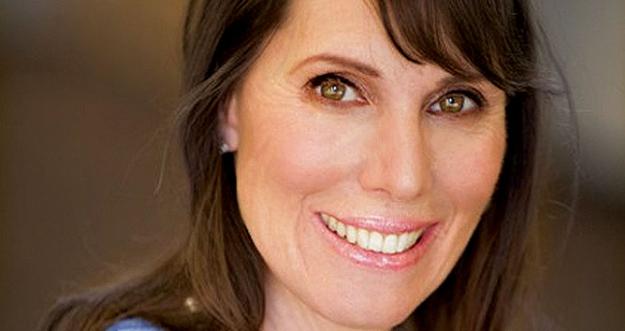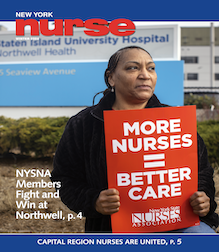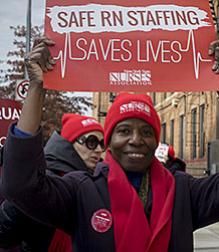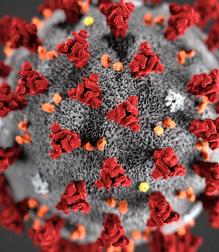
Our licensure, professionalism and advocacy for our patients are built upon the skills of each and every registered nurse. We were educated to achieve high RN standards and continue to learn in advanced courses and in the workplace. Our particular knowledge and skill set, our keen awareness of conditions on the units, and our commitment to quality patient care — for ALL New Yorkers — are derived from being registered nurses.
NYSNA is the largest union and association of registered nurses in New York State. Having added 3,000 members to our ranks in the last two years, we are now 42,000 strong. Our union’s foundation is built upon the unique and exceptional skills of what it means to carry out the duties of a registered nurse.
So it is with deep concern that we learned about provisions within the 2017-2018 NYS draft budget that could have far-reaching implications that will directly affect nurses and our patients. These provisions could allow non-nurses to take over specific responsibilities currently within the strict purview of licensed registered nurses.
Much at stake
Specifically, the draft budget proposes the creation of a Health Care Regulation Modernization Team to create “more flexible rules related to licensing and scope of practice.” This “Team” would be comprised of up to 25 voting members and would have within it a “licensing” subgroup. It would be stacked heavily in favor of hospitals and other healthcare industry representatives.
If enacted, its work would begin this July and the comprehensive deregulation scheme that would be its mandate would be in place by December.
In recent legislative sessions, we have seen bills that would expand the scope of practice for pharmacists, paramedics and EMTs to provide care outside their scope of practice and without the appropriate education and training. These measures and others serve to undercut our professional scope of practice and deny patients the quality care they deserve.
There is more relevant history. In 2011, a Medicaid Redesign Team was established — a group that public health experts say was rife with conflicts of interest and that served largely to rubber-stamp a pre-ordained agenda. “That ‘team’ had only a few labor representatives, zero community representation, and was largely stacked with industry CEOs,” said Judy Wessler, one of New York’s most authoritative public health experts.
(Wessler was a key player in efforts to pass the Enhanced Safety Net Hospital bill last year, legislation that would bring equality of Medicaid resources to public and rural hospitals. Our coalition of unions and public health organizations continues to pursue passage of a bill in the 2017 session.)
We could expect similar policies from the “Health Care Regulation Modernization Team”.
In addition to professional licensing issues, the Health Care Regulation Modernization Team would be charged with:
- “Streamlining” the Certificate of Need approval process, which would further the industry agenda without scrutiny and consideration of patient care issues;
- “Streamlining and simplifying” the provision of primary care, mental health and substance use disorder into clinic settings and creating rules to allow for telemedicine and alternative models for delivering health care services. Creating pilot programs to test and evaluate “new and innovative models of healthcare” prematurely.
- “Self-regulation” of industry, with less inspection and oversight of quality, safety, working conditions and access to healthcare services.
- The two-tiered healthcare system that operates today, with its disparities in access and quality of care, will worsen. This has profound effects in underserved communities and communities of color.
- This would prioritize cutting costs over patient care.
- Highly-skilled nurses would be replaced by workers without the training of an RN.
- Non-nurses would be forced by management to take on RN duties without proper training or pay, and no clear path for advancement.
Any attempt to erode the CON process eliminates NYSNA’s right to participate in that process by presenting evidence and intervening on behalf of our patients.
Clinics, outpatient services, and alternative models of healthcare services already have been created to circumvent the CON process and have not been subject to the same level of state oversight as established care models. To further open the door to private owners with little or no state oversight does damage to our practice and patient care standards.
These proposals have the potential to constitute an attack on our scope of practice and efforts to achieve quality of care.
Our vigilance and advocacy is more important than ever — for the future of our practice and our patients.




